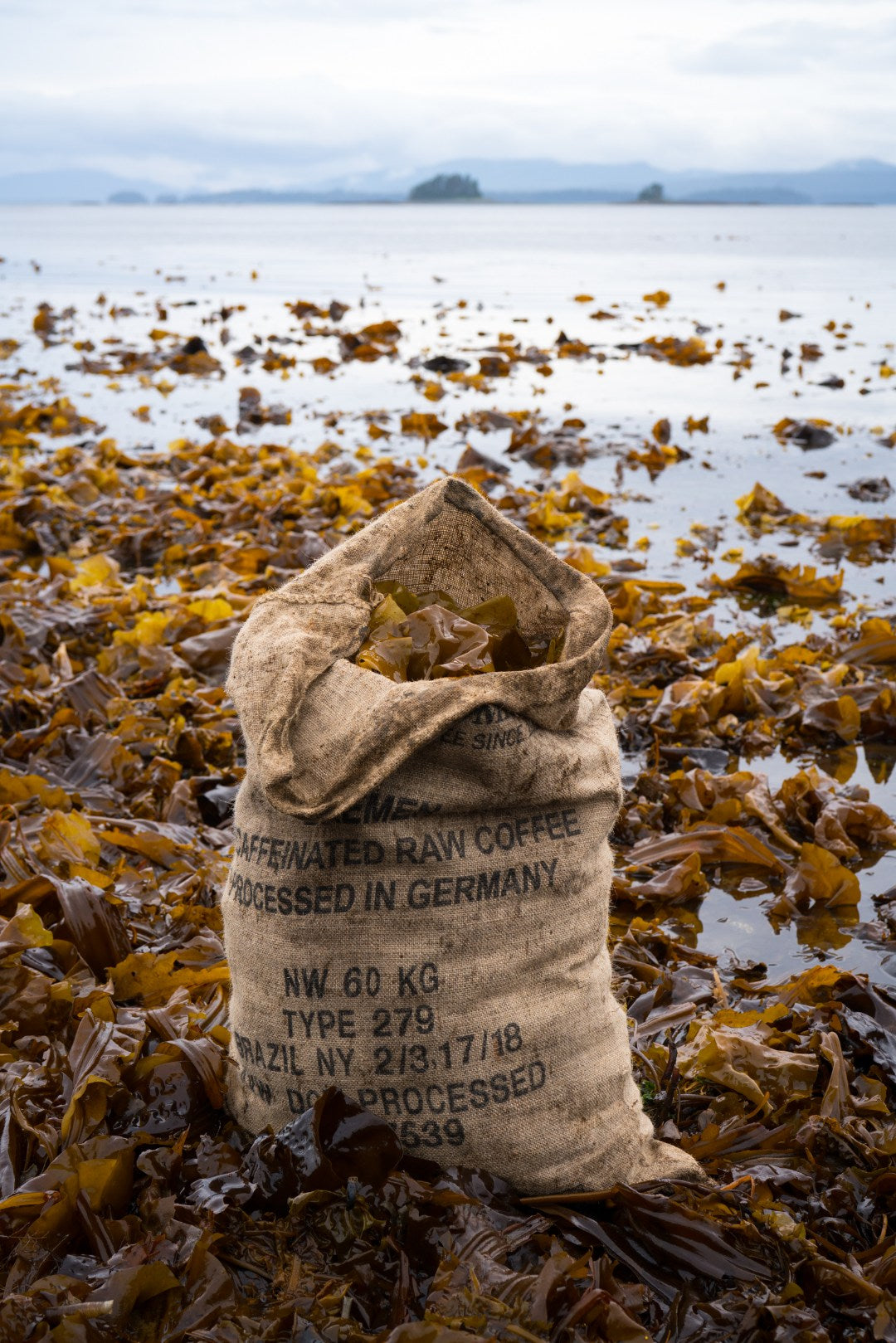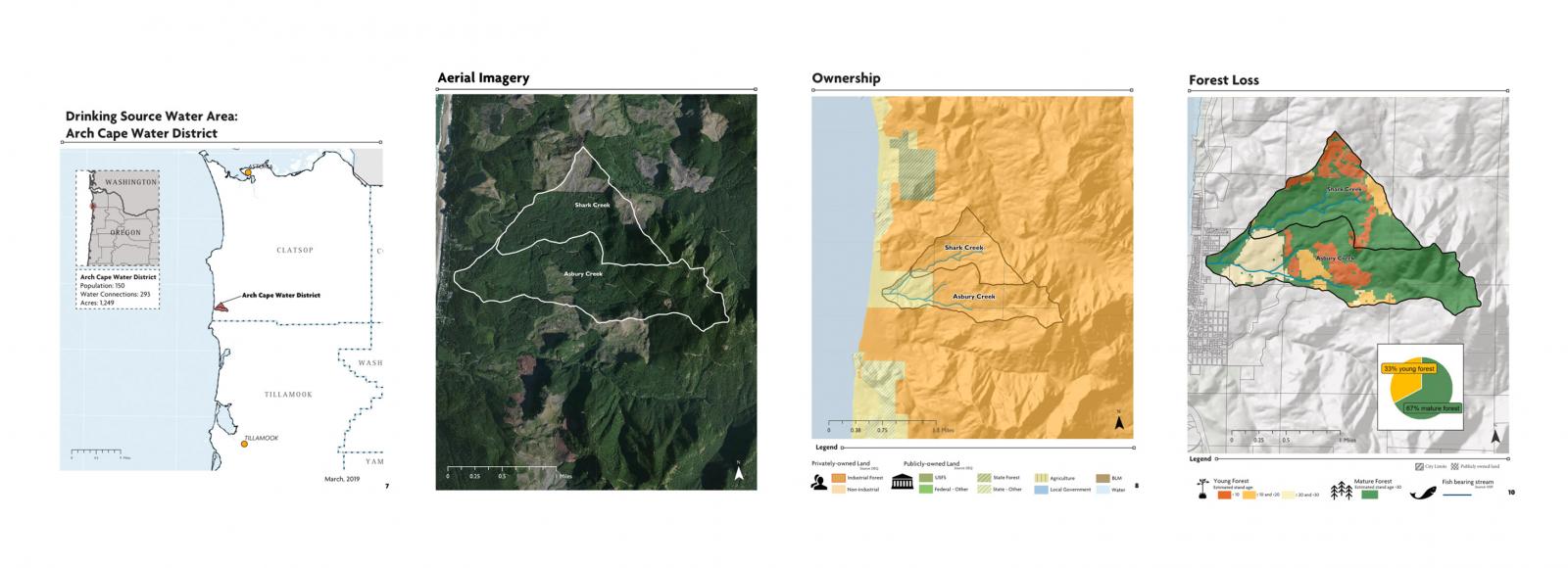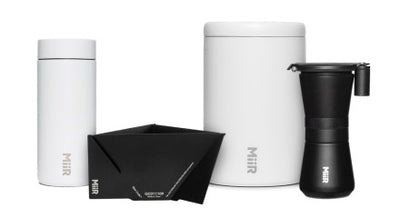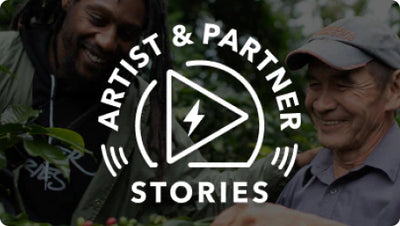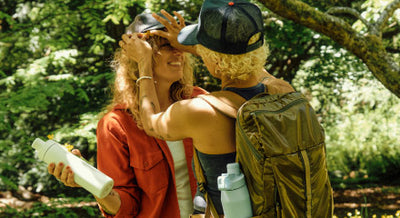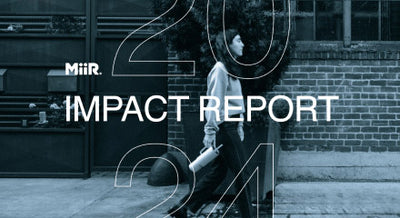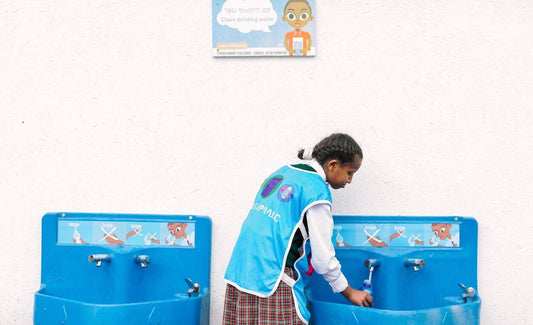
Ecotrust develops climate-smart, community driven solutions to problems across its home region and is achieving impact through projects implementing coastal stewardship practices that are ecologically and culturally restorative, and racially and economically just.
On the farm, at the coast, in the forest, and across our cities, Ecotrust works in partnership from California to Alaska towards an equitable, prosperous, climate-smart future. They recognize the legacy of colonialism and the deep inequities of our home region, and believe that radical, practical change is possible and necessary. To learn more about their work, including one of their pivotal projects in Kake, AK, click here.
The Partnership:
MiiR & Ecotrust have been in partnership since 2019 when MiiR issued the first of two grants totalling $85,000. When our paths first merged, we knew instantly this was a partnership destined for great things. Ecotrust is committed to 3 central tenants: Equity, Economy, & Environment, which are all central to MiiR’s mission and values.
In seeking partnership, MiiR always looks towards organizations that will push us to grow and Ecotrust stood out as a partner we could count on to be challenged by and continuously learn from. Ecotrust advances social equity, economic opportunity, and environmental well-being for all in a truly community led way.
Organizational Priorities:
Today, Ecotrust is engaged in 35 projects from Alaska to California, working in collaboration to:
- Build broadly shared, intergenerational wealth for our region’s communities;
- Increase regional resilience to a changing climate while centering the needs of and learning from frontline communities; and
- Shift lands and waters stewardship practices to ones that are ecologically and culturally restorative, and racially and economically just.
Here is a sampling of some of Ecotrusts priorities and outcomes that we can advance in California, Oregon, Washington, and Alaska together:
Featured Programs:
1. Tribal sovereignty and coastal resource management
In Kake, Alaska, Ecotrust is part of a team co-creating a climate-smart, thriving mariculture industry through the development of sustainable seaweed and kelp farming. The partnership is building economic and ecological resilience in a region where gathering, hunting and fishing are a way of life.
By working directly with nascent farmers, this project is building a regenerative mariculture industry with pathways to establish Indigenous people and tribal nations as industry leaders. When done correctly, kelp farming improves water quality by filtering excess nutrients, provides essential habitat that supports diverse ecosystems, and helps mitigate ocean acidification by absorbing carbon. It’s also a job-creating machine too: farming seaweed in less than 5% of U.S. waters could create 50 million jobs in direct on-farm employment.
These types of changes are needed in Southeast Alaska, where the unemployment rate in Kake is over 70%.

The economic and climatic benefits of regenerative ocean farming are clear but perhaps more important than what they’re farming is who is farming. This project is part of a bigger push to recognize the sovereignty of Alaska Natives to steward their lands and waters. Ecotrust envisions Kake as a hub for mariculture production in Alaska and as a model for coastal Native communities throughout the United States.
In 2021, a successful 3-day “beginning kelp and shellfish farming” workshop drew 28 Alaska Native individuals from seven communities in Southeast Alaska. Building on this momentum, the project is currently offering intensive support to 2-3 nascent kelp farmers. Support includes business development and feasibility assessments for kelp processing in Kake. Moving forward, Ecotrust –– in partnership with the Alaska Fisheries Development Foundation, Green Wave, Organized Village of Kake, Spruce Root Community Development, and Sustainable Southeast Partnership –– seeks to expand their work in the community and measure outcomes such as number of jobs created, amount of kelp produced, and carbon sequestered, as well as qualitative impacts such as the community's ability to improve food security and management of ancestral homelands.
2. Fisheries, agriculture, and equity

Drifters Fish, a 2019-20 participant in our Accelerator program, is a Community Supported Fishery from Cordova, Alaska, specializing in wild Copper River and Prince William Sound wild salmon. Each fish is hand-picked and delivered by Nelly and Michael Hand, ensuring quality from sea to table.
Photo Credit: Kelsey & Shaun Boyte
Ecotrust’s Ag of the Middle Accelerator (Accelerator) is a two-year, hands-on, capacity-building, business development program designed to cultivate a thriving cohort of sustainable and community-driven farms, ranches, and fishing operations throughout Northern California, Oregon, Washington, and Alaska. Fishers have made up about 35 percent of the nearly 100 Accelerator participants since the program’s start in 2017.
Over the last two years, Ecotrust has been evolving the Accelerator, intentionally embedding new initiatives to center equity in the program. These initiatives include: removing barriers to join the program; expanding services to Spanish speaking producers; and, most recently, inviting past and current participants to learn how systemic racism impacts food systems, as well as how it creates barriers to building intergenerational wealth in Black and Indigenous communities as well as in other communities of color. Accelerator participants are also encouraged to reflect on their ability to dismantle systems of oppression in their (often rural) communities.
Education around systemic racism is needed in food systems, where Indigenous communities around the Pacific Northwest are still fighting to exercise centuries old treaty rights to fishing in ancestral homelands and only 2% of private rural land and 4% of private agricultural lands are owned by people of color. Small and sustainable farmers and fishers, many of whom identify as white, have the opportunity to leverage their power and privilege to take action on building a more equitable food system.
These initiatives combine powerfully with the Accelerator’s formal instruction for its producer-participants from experts in business structure, finance, taxation, accounting, credit, and market development, as well as the ongoing community of support.
So, how is this program impacting the fishers and the other producers who are building their businesses for economic, social, and environmental impact?
Ongoing evaluation and feedback of this program has consistently proven that producers are gaining new skills, knowledge, and connections that are enabling their growth. The 2018-2020 cohort increased their collective revenue by $2M, hired an additional 9 people, and increased acres under management by 32% after their participation in the program. In 2021, Ecotrust established a partnership with the Local Catch Network to replicate and adapt the AOTM Accelerator into a business development program specifically for fishers named Scale Your Local Catch. Scale Your Local Catch launched in December 2021 is serving a cohort of 17 fishing and seafood businesses around the country. A second cohort will be launched in December 2022.
3. Tools to enable coastal community action:

In Oregon, surface water –– water that comes from forest streams, rivers, and lakes –– provides 70 percent of all water used in the state, with 163 communities dependent on this water to fill their daily needs. In partnership with the Northwest Community Forest Coalition and Sustainable Northwest, Ecotrust assembled, analyzed, and developed an interactive mapping tool that provides site-specific data to the 50 coastal communities in Oregon that depend on surface sources for drinking water in this interactive web tool. It's a freely offered, publicly accessible tool designed to help coastal communities plan for a more populous and increasingly climate-constrained future.

Surface water is vulnerable to a variety of pollution sources. Since so much surface water comes from forests, the location, method, and scale of timber harvests can impact community health and water security. Coastal watersheds are also impacted by development and climate-related disturbances including wildfire, drought, and more severe winter storms. Coastal communities need to protect their drinking water, but visualizing future impacts and quantifying their tradeoffs takes resources few communities have.
Through the Ecotrust Drinking Water tool, coastal community members, city managers, utility service providers, planners, and others can learn more about where their drinking water comes from and its current state of vulnerability. This is precisely the kind of information that the community of Arch Cape used to prioritize and start planning to purchase a large portion of their drinking water source area from private timberland owners. With a commitment to delivering data to support community-led decision-making, this drinking water resource is one tool, among many, that Ecotrust has developed in support of lands and waters stewardship.
Engagement Opportunities:
- Stay Connected - Follow Ecotrust on social media or sign up for their eNews to get updates about their efforts and hear the voices of an equitable, prosperous, climate-smart future.
- Visit - Ecotrust manages two spaces in Portland, Oregon where mission-aligned businesses serve up delicious food and wares, public spaces are open for conversation, and events are hosted when it is safe to do so. Stop by and say hello.
- Make a Donation - Support Ecotrust’s mission to inspire fresh thinking that creates economic opportunity, social equity, and environmental well-being by visiting here.


